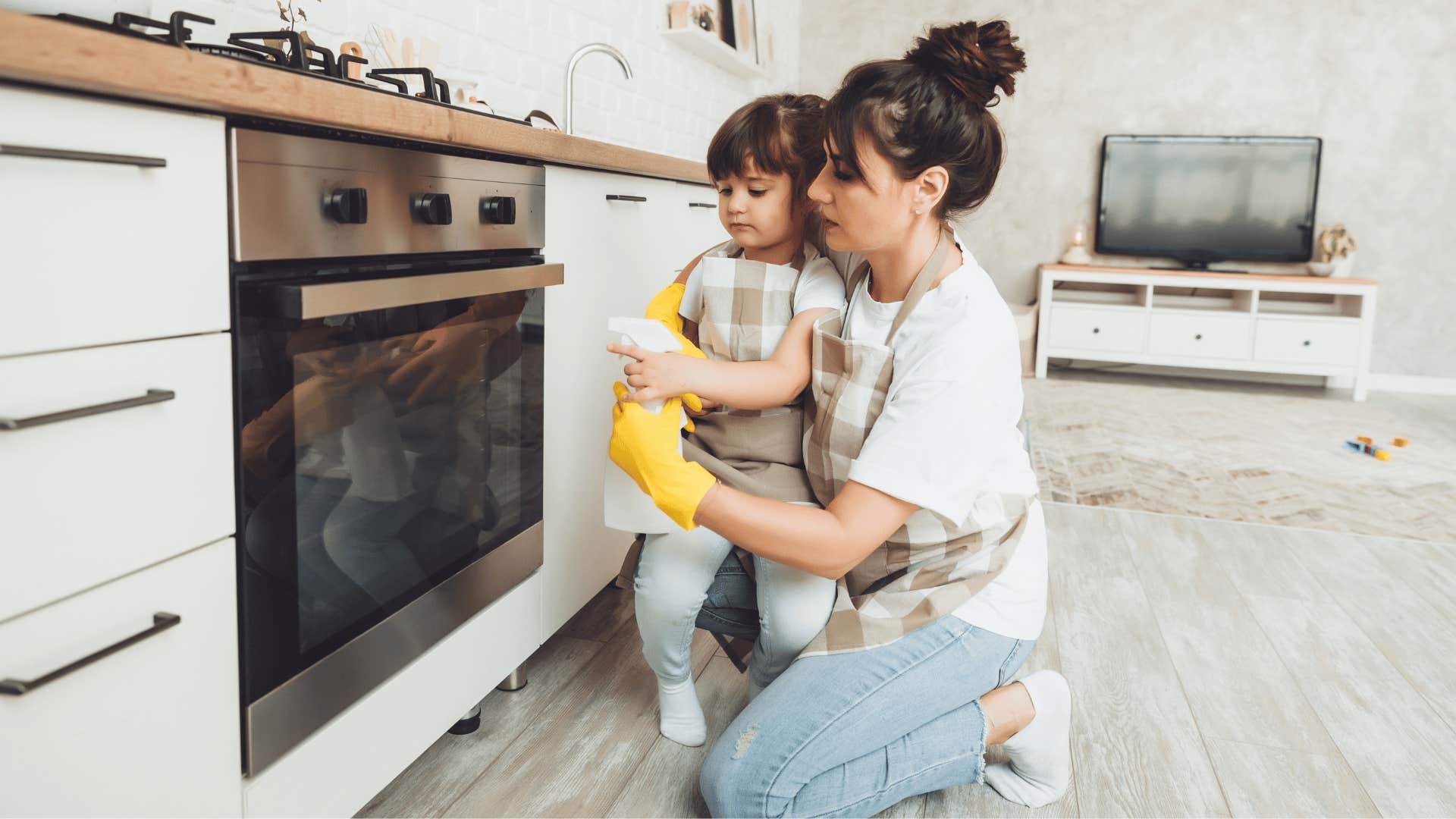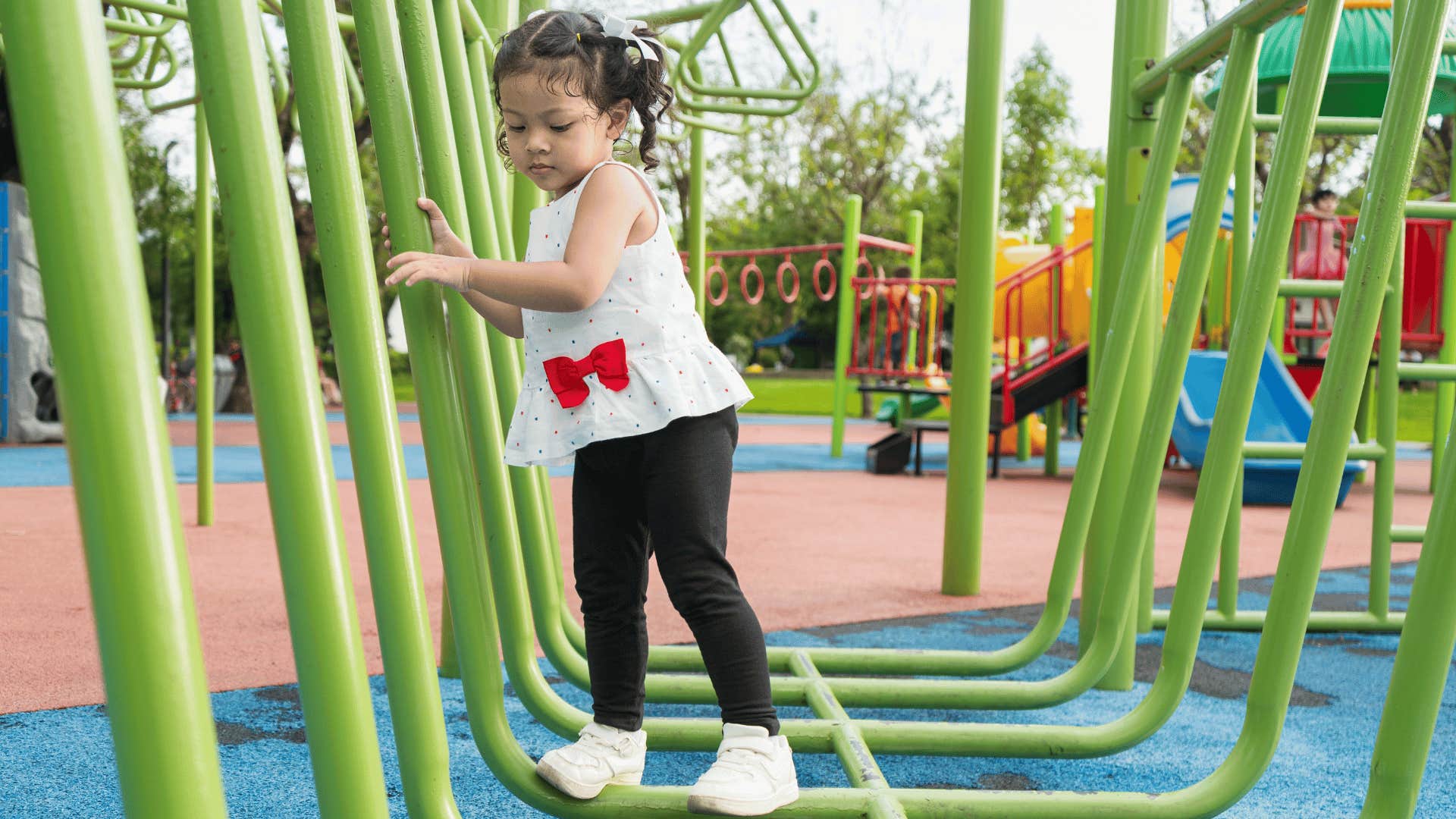10 Meaningful Lessons That Millennial Parents Are Not Teaching Their Kids
Millennials are doing their kids a disservice.
 Julia Zavalishina | Shutterstock
Julia Zavalishina | Shutterstock Millennials came of age in a transitional time, straddling a line between the analog and digital world. Their parents were fairly protective, and emphasized academic achievement and striving for economic success. Now that they have children of their own, there are many meaningful lessons that millennial parents are not teaching their kids.
Every generation faces its own set of child-rearing challenges and parenting decisions they have to make, and millennials are no different. Some millennials parents have chosen to mirror the parenting techniques their own parents used, while others have decided to go in the opposite direction.
Here are 10 meaningful lessons that millennial parents are not teaching their kids
1. How to be self-sufficient
 Inna photographer | Shutterstock
Inna photographer | Shutterstock
One meaningful lesson millennial parents are not teaching their kids is how to be self-sufficient. Millennials have a tendency to be helicopter parents, meaning they're over-attentive in a way that can be detrimental to their kids' development.
According to a research study from 2022, helicopter parents believe that their child is "lacking in self-care competence and thus needs to be overly protected." The study's researchers maintained that overprotective parenting sends a message that kids are "incapable of overcoming their own struggles and in need of constant protection from the dangers of the world."
While parents should meet their kids' emotional and practical needs, it's equally as important for kids to learn to do certain tasks on their own. Because millennial parents don't teach self-sufficiency, their kids become dependent on them in a way that hinders their ability to meet their own needs later in life.
2. Failure is part of success
 fizkes | Shutterstock
fizkes | Shutterstock
Millennials were raised in the era of the participation trophy, meaning they were celebrated just for showing up and trying their best. While that mentality had some positive attributes, it also taught millennials to be scared of failure, which is a lesson they taught their own children, in turn.
The truth is that failing isn't something to avoid, but rather, something to embrace. Even though it's scary to consider failing, millennials aren't teaching their kids the valuable lessons that accompany making mistakes. Failure is an essential part of finding success. As life and business coach Patricia Magerkurth revealed, "Life's crucial lessons are hidden in failure."
Magerkurth shared that part of failing is reflecting on what went wrong, which allows people to gain knowledge they didn't have before. They incorporate that deep level of self-awareness into their future plans, which helps them learn from what they've done wrong in the past. "Failure is not permanent but is an experience that you can weave into the tapestry of your life," she concluded.
3. How to handle discomfort
 SeventyFour | Shutterstock
SeventyFour | Shutterstock
Another meaningful lesson that millennial parents are not teaching their kids is how to handle being in uncomfortable situations. Much like failure, discomfort is something millennials try to avoid at all costs, instead of recognizing how it can help their kids learn and grow.
As overly attentive parents, millennials often pave the path forward for their kids by trying to ensure they won't experience any hardship. As a result, their kids don't learn the important skill set they need when they face hard things later in life. Experiencing discomfort is part of life, yet kids need to learn how to manage it, instead of trying to pretend it doesn't exist.
4. Appreciating what they have
 cottonbro studio | Pexels
cottonbro studio | Pexels
A meaningful lesson that millennial parents are not teaching their kids is the value of appreciating what they have, rather than always asking for more. Fostering gratitude is a lesson that truly keeps on giving, yet millennial parents don't show their kids how to be grateful.
Expressing gratitude can have major psychological benefits. Various research studies have noted that having a grateful mindset and expressing gratitude on a daily basis can help bolster people's self-esteem and their mental health, while having lasting positive effects on how people's brains operate.
Instead of giving into the pressures of materialism and always seeking out what they don't have, millennials should aim to show their kids the power of being grateful.
5. Entertaining themselves without technology
 Q88 | Shutterstock
Q88 | Shutterstock
Millennials were raised on the cusp of the internet's existence. They experienced childhood both with and without being chronically online, yet their own kids are digital natives, meaning they've always known a life with constant access to technology.
A 2023 study, as well as many other research articles, found that too much screen time has negative effects on kids' emotional and psychological development. An additional study from JAMA Pediatrics determined that, starting at age one, kids who have up to four hours of screen time per day have a higher risk of developmental delays in communication, fine motor, problem-solving, and personal and social skills by age two.
A majorly meaningful lesson that millennials are not teaching their kids is how to entertain themselves without technology. Instead of leaving their kids to make their own fun and use their imagination, millennials plug their kids into screens at any sign of boredom or distress. As a result, their kids don't develop the internal mechanisms they need to keep themselves entertained without the use of technology.
Limiting screen time has many positive benefits, and setting strict boundaries around screens is something millennials could definitely incorporate more of into their parenting.
6. The value of persevering
 Liderina | Shutterstock
Liderina | Shutterstock
Millennial parents are not teaching their kids the meaningful lessons that come with persevering when things prove difficult. Parents who let their kids off the hook instead of teaching them to push through tough times deny them the opportunity to learn the depths of their inner strength.
According to research from Current Opinion in Psychiatry, "higher levels of resilience are related to fewer mental health problems." Kids need to learn that not everything in life comes easily. In fact, most good things take concerted effort to achieve.
By saving their kids from their possible failures, millennial parents essentially teach them to give up. Trying tasks over and over is what leads kids to master their own abilities, which is a lesson they miss out on if their parents don't model the importance of sticking with hard things.
Kids build confidence not only through winning, but through making mistakes and learning just how resilient they can be.
7. How to overcome challenges
 PeopleImages.com - Yuri A. | Shutterstock
PeopleImages.com - Yuri A. | Shutterstock
Along with perseverance, kids need to learn how to overcome the challenges they'll inevitably face as they grow older. Millennial parents are not teaching their kids how to bounce back from failure, which has negative impacts on their sense of self-worth.
Cheryl Gerson, a licensed clinical social worker, explained that "Too many kids and their parents look at success as a magical thing some people are either meant for, or they're not." She noted that parents impede their children's growth by "letting them bail out of anything that pushes their comfort zone."
"Our kids need us to teach them the value of staying with something difficult," she concluded. By learning that challenges are an inherent part of life, kids learn how to face setbacks with an attitude that they can overcome them, rather than just give in.
8. Fostering independence
 Dima Berlin | Shutterstock
Dima Berlin | Shutterstock
It isn't easy for parents to let their kids spread their wings and leave the nest, but fostering their independence is a crucial part of teaching kids just how much they can really achieve. But in their effort to make life easy for their kids, millennial parents often do too much for them, which means they don't teach them how to believe in themselves.
A 2021 study from the Journal of Family Psychology found that the effects of parents overstepping can have consequences. In the study, when parents of kindergarten-aged children stepped in to correct or make suggestions to their kids playing, the children had more trouble regulating their emotions and behavior at other times. Additionally, the children "performed worse on tasks that measured delayed gratification and other executive functions, skills associated with impulse control and the ability to shift between competing demands for their attention."
With each milestone in their kids' lives, parents have to learn to let go, even just a little bit. Young kids need to know that they can trust their own instincts. Teens need to learn that they can make decisions for their own futures, like where they want to go to college, or if they want to even go to college at all.
When millennial parents step in and make choices for their kids without hearing what their kids want for themselves, they stand in the way of them learning how to be independent individuals, with their own beliefs and values.
9. Delayed gratification
 fizkes | Shutterstock
fizkes | Shutterstock
A big part of being constantly connected to technology is the growing dependency on receiving instant gratification. Millennials are not teaching their kids the value of waiting for what they want. Delayed gratification teaches kids how to have patience and manage their expectations. It shows them that not everything in life is automatically given to them, just because they want it right now.
While it seems like it's easier in the moment to avoid a major meltdown and give kids exactly what they want when they want it, delayed gratification teaches kids valuable skills. With delayed gratification, kids learn how to emotionally regulate themselves and how to handle disappointment.
Learning that not everything happens instantly is a meaningful lesson that millennial parents are not teaching their kids.
10. How to take healthy risks
 BOONDARIN | Shutterstock
BOONDARIN | Shutterstock
A parent's role in their children's lives is to act as a guide and protect them from harm. Yet many millennial parents hold so much fear that their kids will get hurt that they don't let them take appropriate risks and face challenges head-on.
Millennial parents aren't teaching their kids how to take healthy risks, due to their overprotective parenting style. As a result, their kids don't learn how to step out of their comfort zones and do things that scare them, which is a major part of becoming an adult.
Research from the International Journal of Environmental Research and Public Health determined that "Societal trends limiting children's access to outdoor risky play opportunities combined with a culturally dominant excessive focus on safety can pose a threat to healthy child development." Not all risks are created equally, which means that some risks are undeniably dangerous, while others can help kids grow and learn how capable they really are.
Taking calculated risks shows kids how to trust themselves, and it shows that their parents trust them, too.
Alexandra Blogier is a writer on YourTango's news and entertainment team. She covers social issues, pop culture analysis and all things to do with the entertainment industry.

